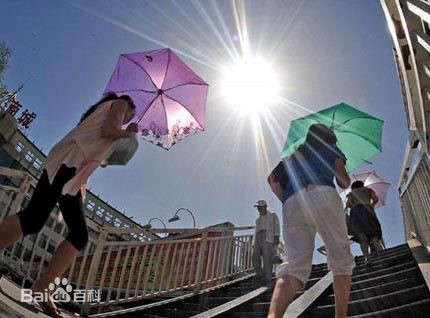Beijing has undergone several important urbanization development stages since late 1978. Linked with urbanization, the so-called "urban heat island effect" is a key problem caused by urban land expansion. Such changes in air temperature in Beijing inevitably have an impact on the daily lives of its inhabitants, and is therefore of considerable interest to scientists and the wider public alike.
Scientists from the School of Environment at Beijing Normal University and Institute of Atmospheric Physics at Chinese Academy of Sciences used the mesoscale Weather Research and Forecasting model coupled with a single urban canopy model and high-resolution land cover data to analyze the spatial and temporal patterns of summertime urban warming influenced by three stages of urban land expansion during 1990-2010 across Beijing. They found that urban-induced warming increased with urban land expansion, but the speed of warming declined slightly during 2000-10.

People going about their daily lives during a summer heat wave in Northern China. (Baidu encyclopedia entry: "heat wave")
They further examined the impacts of heat waves and high-temperature weather on urban-induced warming and the mechanisms associated with the surface energy balance, and revealed an interrelationship between urban-induced warming and heat waves. Dr. LIU Xiaojuan, the first author of the study, explains their findings published in Advances in Atmospheric Sciences:
"Heat waves can increase surface air temperatures over both urban and crop areas. Our results indicate that heat waves enhance nocturnal urban warming in summer in Beijing and further cause a change in daily mean warming to some extent. That is, heat waves induce a higher increment of air temperature in urban areas than in crop areas. This implies that urban land expansion may heighten heat waves in urban areas. Therefore, urban-induced warming should be considered as one possible source of heat waves in urban areas."
Reference: Liu, X. J., G. J. Tian, J. M. Feng, B. R. Ma, J. Wang, and L. Q. Kong, 2018: Modeling the warming impact of urban land expansion on hot weather using the Weather Research and Forecasting model: a case study of Beijing, China. Adv. Atmos. Sci., 35(6), https://doi.org/10.1007/s00376-017-7137-8.
Contact: LIN Zheng, jennylin@mail.iap.ac.cn
